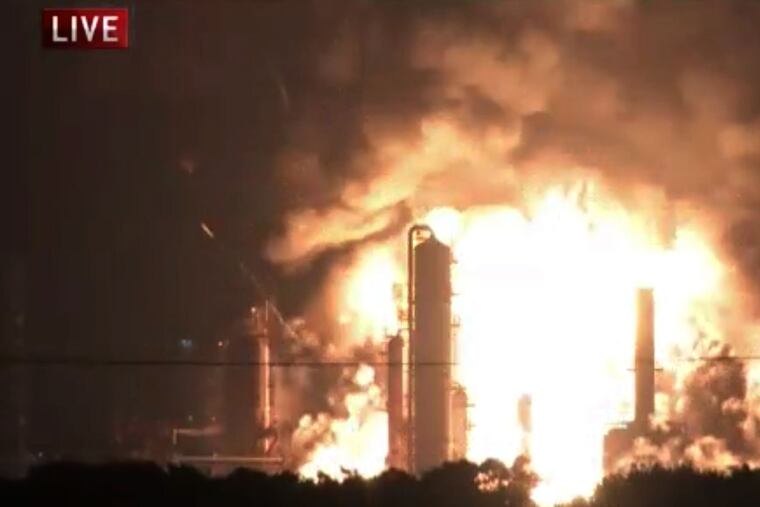Philly refinery fire shows why EPA must not cut regulations, say 13 attorneys general, including Pa., N.J.
Pa. Attorney General Josh Shapiro and 12 other state attorneys general sent a letter to the U.S. Environmental Protection Agency urging the agency to scrap a proposed rollback of an accident prevention rule in light of the most recent revelations about the Philadelphia refinery blast.

Pennsylvania Attorney General Josh Shapiro and 12 other state attorneys general sent a letter Monday to the U.S. Environmental Protection Agency urging it to scrap a proposed rollback of an accident prevention rule in light of the most recent revelation about the blast at the Philadelphia Energy Solutions refinery earlier this year.
The explosion released two tons of potentially deadly hydrofluoric acid, according to a U.S. Chemical Safety and Hazard Investigation Board (CSB) report released Oct. 16. The blast also hurled metal shrapnel the size of a bus across the Schuylkill.
In addition to Shapiro, the attorneys general of New Jersey, New York, Illinois, Iowa, Maine, Maryland, Massachusetts, Michigan, Oregon, Rhode Island, Vermont, and Washington signed off on the letter, which will be entered as part of a continuing objection to an EPA proposal to loosen a program designed to reduce accidents. The attorneys general want the CSB report submitted as part of that objection.
Representatives for the EPA could not be reached immediately for comment.
The June 21 refinery explosion and fire released 5,239 pounds of hydrofluoric acid and began with the failure of an elbow in a corroded section of pipe. The CSB said the fire triggered three explosions, one of which blew a fuel tank into projectiles, including one weighing 19 tons that traveled 2,100 feet and landed on the opposite bank of the river.
The incident occurred in the early morning when few people were around and caused no serious injuries, though five workers required treatment at the scene.
The attorneys general are objecting to a proposal to revise accident prevention amendments to its Risk Management Program under the Clean Air Act. The Trump administration, through EPA Secretary Andrew Wheeler, wants to do away with amendments relating to safer technology and alternatives, third-party audits, incident investigations, information availability, and other regulatory changes.
The EPA is also proposing to change amendments relating to local emergency coordination, emergency exercises, public meetings, and compliance dates for these provisions, according to its own summary. The EPA said it is proposing the changes to address potential security risks associated with information disclosure requirements and concerns it has about “unnecessary regulations and regulatory costs.” It says the proposal would save industry an estimated $87 million annually.
Attorneys general from various states had objected to the rollback proposal even before the refinery fire, citing blasts elsewhere.
But last week’s revelation from the CSB report added urgency to their objections. The Philadelphia blast released hydrofluoric acid, which can destroy tissue and bone, and has killed people with exposures to as little as 2.5% of body surface skin area. If inhaled, it can cause fluid to accumulate in the lungs, which can also prove fatal.
“The CSB findings make clear that PES and the city of Philadelphia avoided catastrophic loss of life by the narrowest of margins and further underscore the need for the EPA to implement the aspects of the Accident Prevention Amendments requiring better coordination with emergency responders, improved incident investigations, third-party auditing, and safer technology and alternatives analysis,” the attorneys general wrote.
About 44,000 comments from the public have been submitted to the EPA regarding the rule proposal.